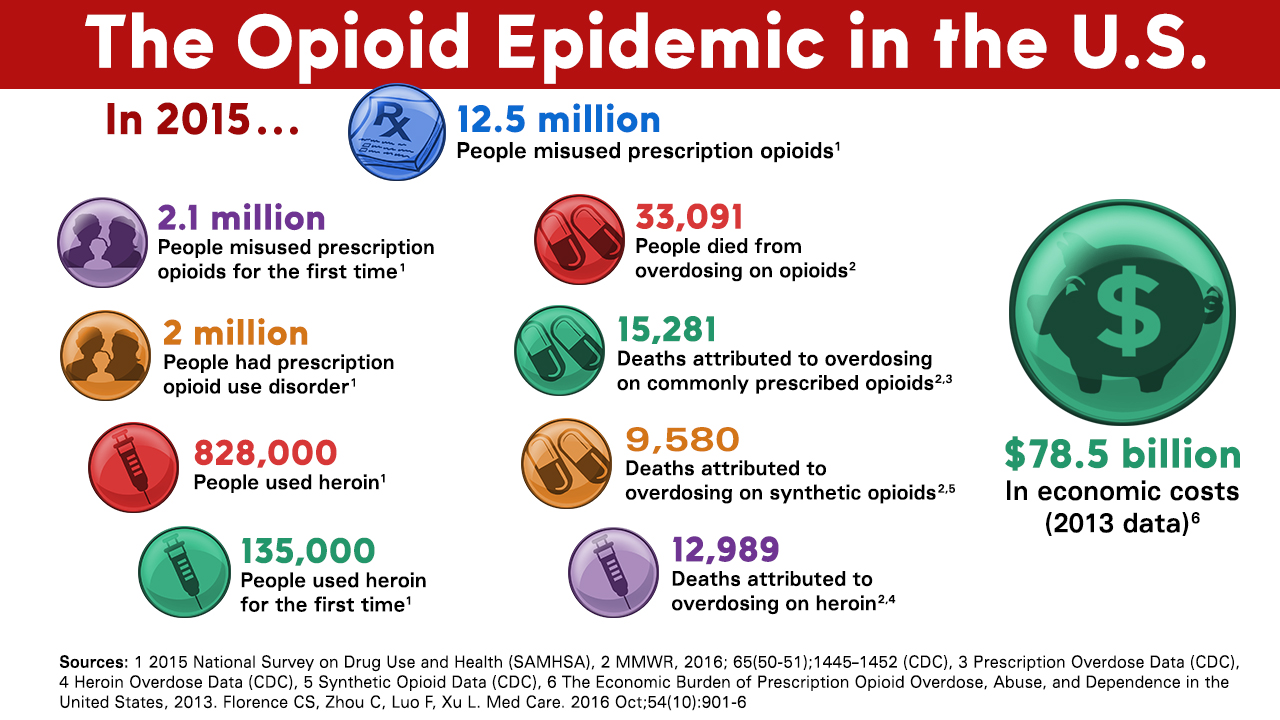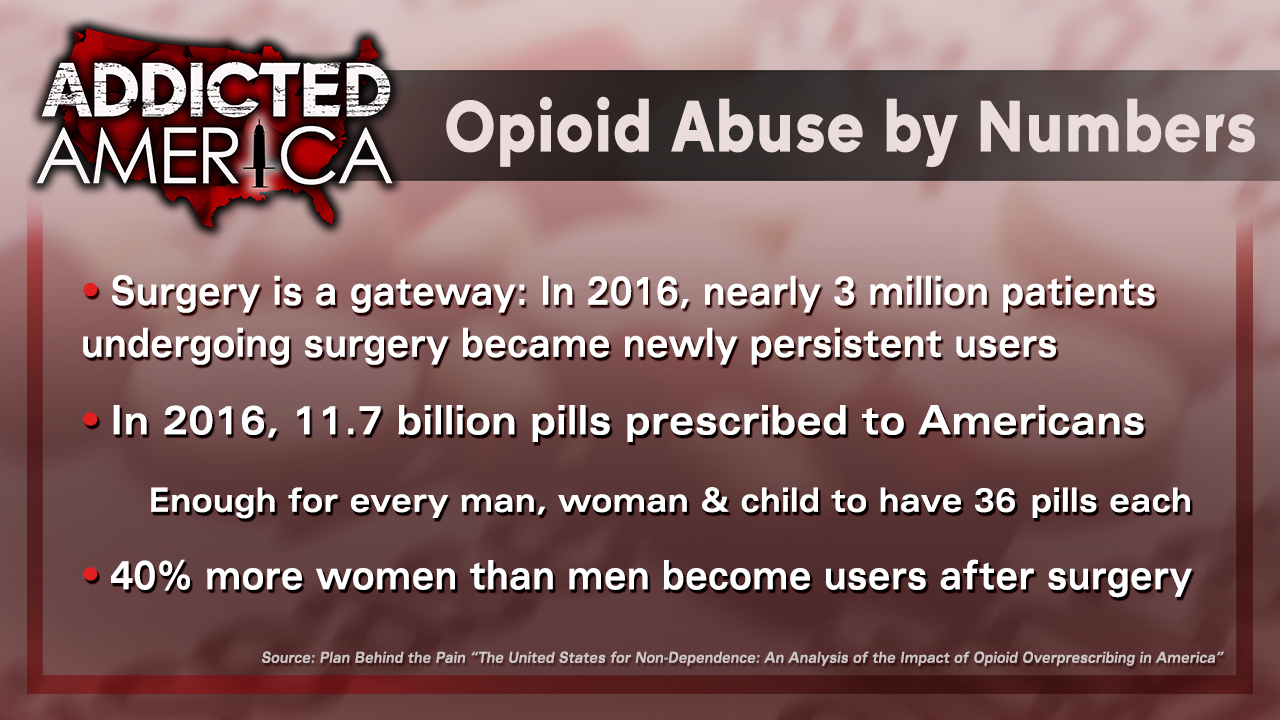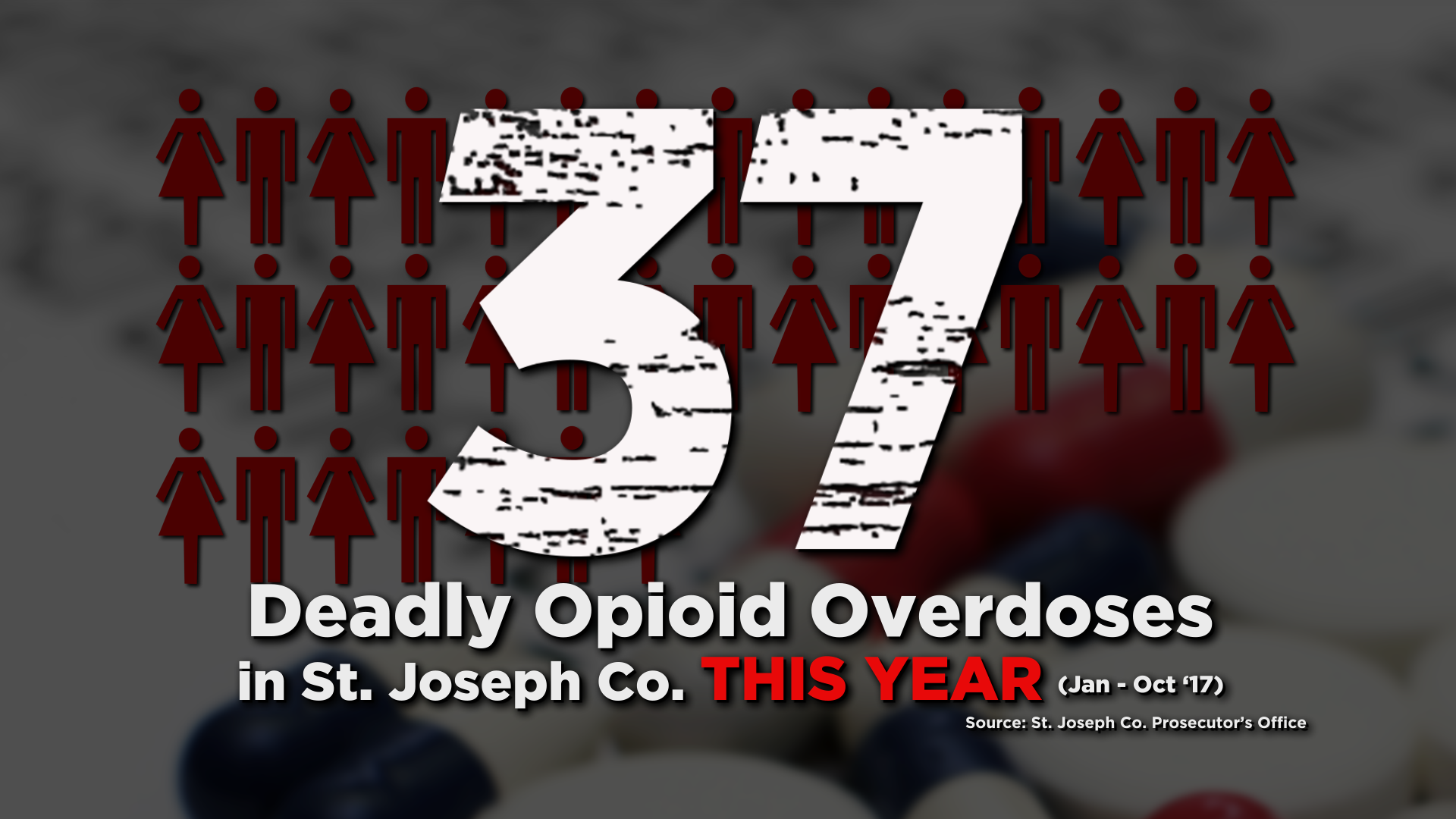Fighting on the Frontlines: Local doctors respond to opioid crisis
ST. JOSEPH COUNTY, Ind.—The path to opioid addiction for many begins in a medical office. Doctors have discovered the pills they prescribe for pain management could be a gateway to drug abuse.
In 2015 more than 1 in 3 Americans were prescribed an opiate for pain relief and according to the CDC a dangerous misuse of those medications brings one thousand users to the ER every day.
It isn’t an easy issue to tackle. But, local doctors are determined to make it right.
When Dr. Todd Graham was shot and killed exactly three months ago, the tragedy influenced different agencies to fight it together.
“We are all working on this now partially because of Dr. Graham but also partially because it’s the right thing to do for our practices and for our patients and for their families,” says Dr. Brandon Zabukovic.
So how did we get here?
General surgeon Dr. Mark Thompson says the problem began in the 90’s when pain became a vital sign, checked each office visit just like body temperature or heart rate.
At the same time, a new treatment went on the market: oxycodone.
“I think the idea that opioids were not addictive and could be used safely to treat pain and this huge awareness of pain was a perfect storm to leave us over-prescribing and over treating a lot of people with pain,” says Dr. Thompson.
Those pills given with good intentions— doctors admit, have led to deadly consequences.
“Me trying to help someone might end up killing someone that’s something I never anticipated that keeps me awake at night,” says Dr. Thompson.
Having a hand in creating even one more addict is their biggest fear. Doctors from different branches of medicine across the area have been working together for a while, but the group gained traction when Dr. Graham was killed.
Dr. Jason Marker, a family doctor and teaching phsycian, says the problem reaches every exam room in Michiana.
“If you thought that you don’t have any patients that have addiction problems in your practice you’re probably wrong. It’s a problem with a lot of little problems underneath it and you cannot solve it with just addressing one of those pieces,” says Dr. Marker.
At Michiana Spine, treating chronic pain is their specialty.
“Pain patients are real patients. They are our family members, our friends, our neighbors, our parents they deserve good quality health care,” says John Kittredge, PA-C.
In moderation they see opioids as an incredibly valuable part of treatment. While they aren’t willing to stop prescribing all together, they are searching for some sort of solution.
“We aren’t intimidated but we are concerned. When you see the spawn of deaths going on, you see a colleague being shot. We need to make sure that we are making the best judgments that we can and we have to be aware that there are other consequences to our judgments,” says Dr. Kevin Drew.
Dr. Drew says sometimes those judgment calls can be very tricky.
“Our biggest enemy is not the addict. Our biggest enemy is the criminal. the diverter,” says Dr. Drew.
Since opening his office 17 years ago, he says he has had to call police on ten different occasions. The most recent issue with a patient happened just days before the deadly office confrontation at South Bend Orthopaedics.
“The spouse was really pressing me hard about writing medications and I was like ‘no I don’t think I should’ and I was talking to the patient and this guy over here is going more and more bonkers and really making himself adamant I remember looking at him and thinking ‘why are you so bothered by this.’”
But, ignoring those warning signs is the easy way out according to Dr. Drew.
“It takes 20 seconds to write, 20 minutes not to write. When you’re getting behind on a day you start thinking where can I make up some time? I can just write this and move on to the next patient and we need to have a little fortitude to not,” says Dr. Drew.
The docs are trying to make that a state law now— to check a patient’s history before prescribing.
“We are trying to figure out how can we work better as a team to address all of the needs of that patient so that they can make that recovery a reality for themselves and ultimately to a certain extent stay out of the legal system as well,” says Dr. Marker.
That includes working with the legal system. St. Joseph County Prosecutor Ken Cotter has joined the team too, talking to over 60 local doctors in different branches of practice. He knows it is not an easy task.
“This won’t end. That also is encouraging for me is I think that our community is now committed that we are going to address this. Are we going to fix it? I can’t answer that, I don’t have a crystal ball but we’re going to keep progressing and have a very intelligent very committed people wanting to address it is incredibly encouraging,” says Cotter.


















